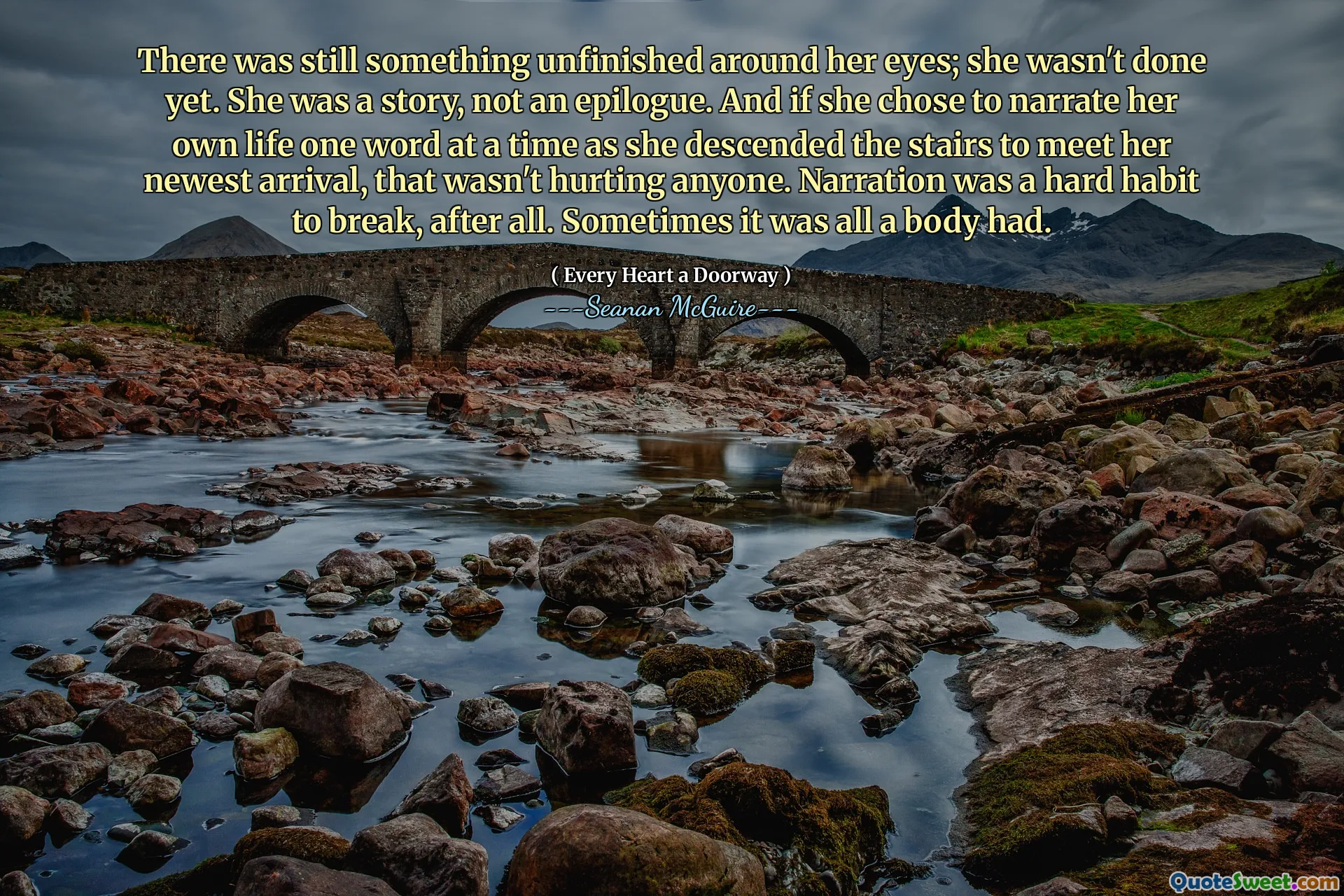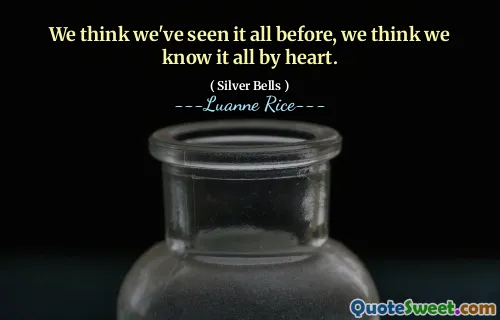
There was still something unfinished around her eyes; she wasn't done yet. She was a story, not an epilogue. And if she chose to narrate her own life one word at a time as she descended the stairs to meet her newest arrival, that wasn't hurting anyone. Narration was a hard habit to break, after all. Sometimes it was all a body had.
This quote beautifully encapsulates the idea that life is an ongoing story, and sometimes the experiences and internal narratives we carry are inseparable from our very being. The imagery of 'something unfinished around her eyes' suggests that she still harbors unspoken thoughts, unresolved emotions, or untold stories. Her being a 'story, not an epilogue' emphasizes that she hasn't reached her conclusion, and her journey is still unfolding. The metaphor of narrating her own life 'one word at a time' highlights the deliberate and conscious participation in shaping one's destiny and identity. The act of descending the stairs while recounting her narrative illustrates how storytelling can be a personal act of affirming who she is, despite external appearances. This process of narration, although possibly isolating or obsessive, can serve as a means of self-clarity and grounding, especially when life's uncertainties loom large. The insightful observation that narration is a 'hard habit to break' echoes a universal truth—humans tend to internalize their stories, struggles, and triumphs, which often shape their worldview and self-perception. It suggests that storytelling, whether external or internal, provides comfort and understanding, sometimes becoming the only way a person can interpret their existence. Ultimately, the quote reminds us that our struggles, our stories, and our unspoken truths are all integral parts of being human; they are what make us complex, resilient, and uniquely ourselves.


